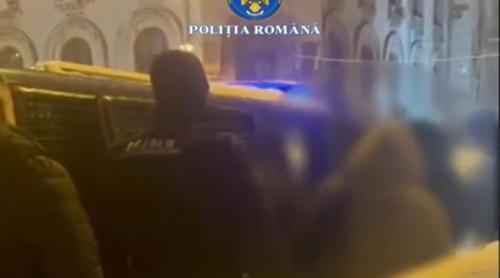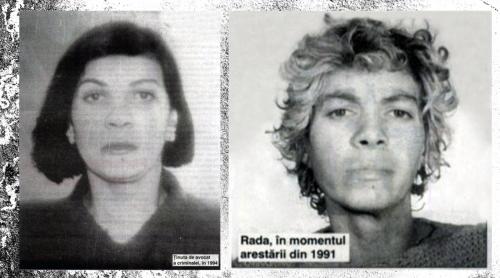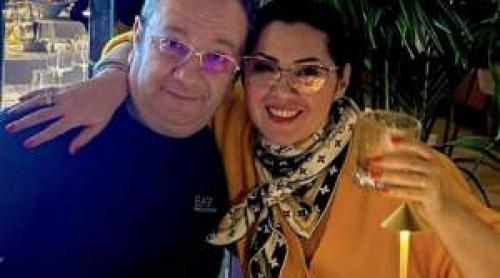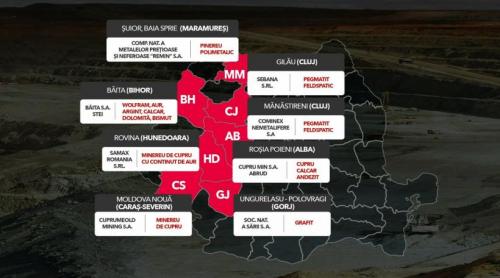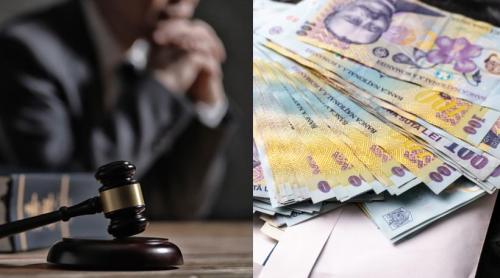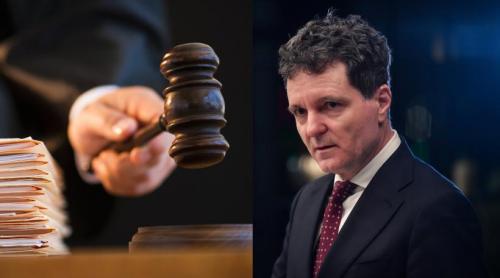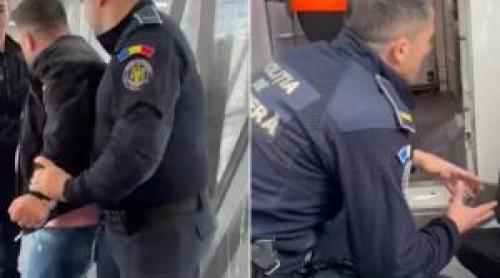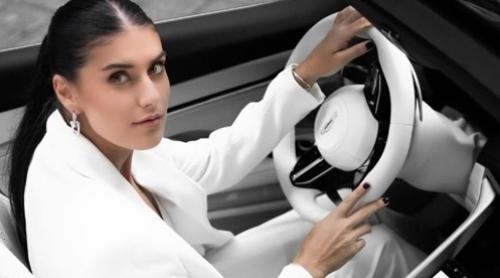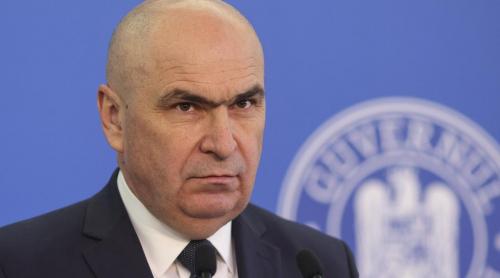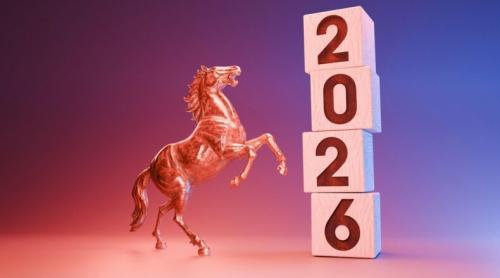
The Peruvian writer Mario Varga Llosa gave an interview to Jurnalul National daily on the occasion of his visit to Romania:
Jurnalul National: Ten years ago, when you first came to Romania you published an article in the Spanish El Pais newspaper, recollecting your experiences at the time. The article was not well received in Romania, since you mentioned there sformer dictator Nicolaet Ceausescu, the religious fundamentalism of Romanians and their liking of the monarchy.
Mario Vargas Llosa:
I had no idea. Why were people unhappy with it?
JN: Letâs say it did not get great reviews. How about your opinion now about Romania?
MVL: Well, I did not spend a lot of time here and did not see many things. I took a walk in Bucharest and visited the Black Sea Coast, so I do not have a full view of the country, but I believe that in past ten years democratization went further and institutions work better and, more over, the country got closer to Western standards and to its future accession into the European Union.
I believe this process is extremely important for strengthening democracy and for attracting foreign investments which are crucial for your economy, job creation and higher living standards.
JN: You repeatedly stated that freedom is the value you cherish most. How do you define this freedom which we all are searching for?
MVL: A French writer said that when one attempts to define freedom the others should pay attention, because one is likely to want to suspend it.
People know very well when they enjoy freedom and when they do not. I believe Romanians know very well what freedom is, particularly since it was denied to them for such a long time. A country where one may criticize the political power is a free country.
A country is free when its citizens may go freely over its borders with no special permission from the authorities. A country is free when its citizens may decide over its future with no one telling them which are the values or principles they should uphold.
Absolute freedom and absolute lack of freedom are the two ends of the scale; some countries are freer than others. For instance a poor country may have laws which guarantee freedom but no person is free as long as that person is unemployed or has poor living conditions.
Freedom is always a process. One should pay attention though when freedom is present or absent.
A country is free when its citizens may go freely over its borders with no special permission from the authorities. A country is free when its citizens may decide over its future with no one telling them which are the values or principles they should uphold.
Absolute freedom and absolute lack of freedom are the two ends of the scale; some countries are freer than others. For instance a poor country may have laws which guarantee freedom but no person is free as long as that person is unemployed or has poor living conditions.
Freedom is always a process. One should pay attention though when freedom is present or absent.
JN: Is literature always a means to express freedom?
MVL: I believe it is. And it is more than that, since literature makes us all crave for freedom. A good book makes us perceive a better, more coherent reality than the one we actually live in. The difference between the reality suggested in the work of art and the one we live in ripens the critical spirit, since nothing teaches us better than literature does that the world is imperfect and should be made a better place. This is why all dictatorships relied on censorship to control the literature. And they were not wrong since major works of art were always a means to undermine dictatorships.
JN: You said at one point, during an interview, that literature is a way to surpass unhappiness. Do you believe are there many readers who indeed enjoyed its therapeutic effects?
MVL: I believe there are now many more readers than at any time in the history, and their number continues to rise; still, they are a minority. Most people do not read at all or read very little. One who reads literature finds thus ways to live lives one could not experience for real, as one travels out of oneâs time, space and body to follow aspirations otherwise left unfulfilled.
At the same time, when one leaves the realm of literature to look at the reality around, one feels a sense of frustration as the real world is always poorer that the fictional world.
This difference between fiction and reality prompts the uneasiness, the quest for different things, hence the reason why literature was important throughout history for prompting the progress of the humanity.
At the same time, when one leaves the realm of literature to look at the reality around, one feels a sense of frustration as the real world is always poorer that the fictional world.
This difference between fiction and reality prompts the uneasiness, the quest for different things, hence the reason why literature was important throughout history for prompting the progress of the humanity.
JN: How do you pick the topic for your books?
MVL: I do not believe I pick the topics as much as they pick me. I believe I write about certain things because certain things happened to me. At one point in my biography something happened that in mysterious ways turns to be the stimulus for my imagination to invent a story.
When I write about a topic, that topic already existed before my mind focused on it and made up a story.
When I write about a topic, that topic already existed before my mind focused on it and made up a story.
JN: You use to tell a story on several different levelsâ¦
MVL: It depends on the bookâ¦
JN: For instance in "The Paradise around the Corner"â¦
MVL: True, there are two stories there, with two different characters, from two different eras; and the stories unwind at the same time to get at one point to a common denominator. Itâs a counterpoint method: on the one hand the story of painter Paul Gauguin is unfolding; on the other hand the story of Flora Tristan, a female character, goes on. I read her autobiography as a student and I was fascinated by her. The idea of writing a novel based on her life haunted me ever since. When I started documenting her life I discovered that her nephew, the famous postimpressionist painter Paul Gauguin was incredibly so much like her, though they never met. They both showed the same tenacity in fighting the system they lived in in order to make their ideals prevail. This is why I came up with the idea of showing their lives in counterpoint: two rebels, two dreamers, living in different times, one a woman, the other a man, but both fighting for their beliefs.
Flora Tristan fought for social justice, gender equality, while Paul Gauguin strived for beauty, freedom, lack of censorship and prejudices.
This is how the idea for "The Paradise around the Corner" came up. At the end of the day, it is a novel about utopia and how it worked its way throughout history.
Flora Tristan fought for social justice, gender equality, while Paul Gauguin strived for beauty, freedom, lack of censorship and prejudices.
This is how the idea for "The Paradise around the Corner" came up. At the end of the day, it is a novel about utopia and how it worked its way throughout history.
JN: As you are a very prolific writer, I assume you are writing a book at present. Could you tell us what are you writing on now?
MVL: I just finished writing a novel called "Travesuras de la nina mala." It is a love story and this is the first time I write one. The central theme is a love story that spans over many years, and it takes place in cities I lived in, during the time I lived there. It is not an autobiography, but the places I describe there are part of my biography.
It is taking place in Lima, in the 50s, in Paris, in the 60s, in London, in the 70s, and in Madrid, in the 80s.
It is taking place in Lima, in the 50s, in Paris, in the 60s, in London, in the 70s, and in Madrid, in the 80s.
JN: The people in the regions which want to secede from Spain do not agree with your stance, which is for a united Spain. Why do you take this stance?
MVL: I am against any type of nationalism. I believe it is the last living ideology of collectivism and that it is probably responsible for the most bloodletting in history.
Both world wars were prompted by nationalism. Though in many cases we speak of nationalist parties which follow the democratic rules of the game, at their heart they have the exclusion of the other party. At the end of the day this proved to become a danger for democracy.
I believe nationalism should be fought against. One of the best outcomes of past tragedies on the European continent was the emergence of the European Union which dissolves nationalism with creating a confederation of states, which respect each others language, culture, and traditions.
Such integrating movements generate opposition of nationalist hue which tries to stop the trend towards integration. I believe nationalism should be fought against as it is totally different from decentralization or regional autonomy, which in fact exists in Spain.
As a matter of fact, Spainâs outstanding progress during the past 25 to 30 years is due not only to democracy but also to the development which allowed for the regional autonomies to be born. Autonomy can get better, decentralization may grow, but this is a far cry from the antidemocratic ideology pushed forward by the nationalists.
Both world wars were prompted by nationalism. Though in many cases we speak of nationalist parties which follow the democratic rules of the game, at their heart they have the exclusion of the other party. At the end of the day this proved to become a danger for democracy.
I believe nationalism should be fought against. One of the best outcomes of past tragedies on the European continent was the emergence of the European Union which dissolves nationalism with creating a confederation of states, which respect each others language, culture, and traditions.
Such integrating movements generate opposition of nationalist hue which tries to stop the trend towards integration. I believe nationalism should be fought against as it is totally different from decentralization or regional autonomy, which in fact exists in Spain.
As a matter of fact, Spainâs outstanding progress during the past 25 to 30 years is due not only to democracy but also to the development which allowed for the regional autonomies to be born. Autonomy can get better, decentralization may grow, but this is a far cry from the antidemocratic ideology pushed forward by the nationalists.
JN: Which are the actual means for fighting nationalism in Spain, which already resorted to so many acts of terrorism?
MVL: With no exception one should fight using ideas and votes cast on the voting day. I state that nationalism is a danger to democracy and should be fought against with the arguments provided by freedom and the rule of law.
JN: Though you are Peruvian by birth, you are more of a European citizenâ¦
MVL: I am both Peruvian and Spanish; I feel equally well in Peru and in Europe.
JN: I wanted to ask the European you are which is Romaniaâs image in Europe?
MVL: Romania is a country which went through a lot of hardship. Inside the communist camp Romania experienced the rule of a dictator who was especially brutal and corrupt. I took a walk in the old part of Bucharest and saw the buildings still standing there: how powerful this city must have been during the two world wars! When you see in contrast the sterilized landscape the communist times produced you almost feel like crying.
These wounds are still present and rebuilding takes time, since dictatorships always leave marks which are not instantly visible but reside in the mentality of the people, in the laws and norms of the society, in the lack of civic spirit.
All the above obstacles hamper the modernization of a country.
This is Romaniaâs image abroad. I guess it will all change when Romania will become modern and strengthen its democracy. Happily, this does not have to take several generations to occur: when opening the borders a country may reach quicker to the levels of development it targets.
Obviously, I wish Romania that time to come as soon as possible.
These wounds are still present and rebuilding takes time, since dictatorships always leave marks which are not instantly visible but reside in the mentality of the people, in the laws and norms of the society, in the lack of civic spirit.
All the above obstacles hamper the modernization of a country.
This is Romaniaâs image abroad. I guess it will all change when Romania will become modern and strengthen its democracy. Happily, this does not have to take several generations to occur: when opening the borders a country may reach quicker to the levels of development it targets.
Obviously, I wish Romania that time to come as soon as possible.
Translated by ANCA PADURARU
Citește pe Antena3.ro




